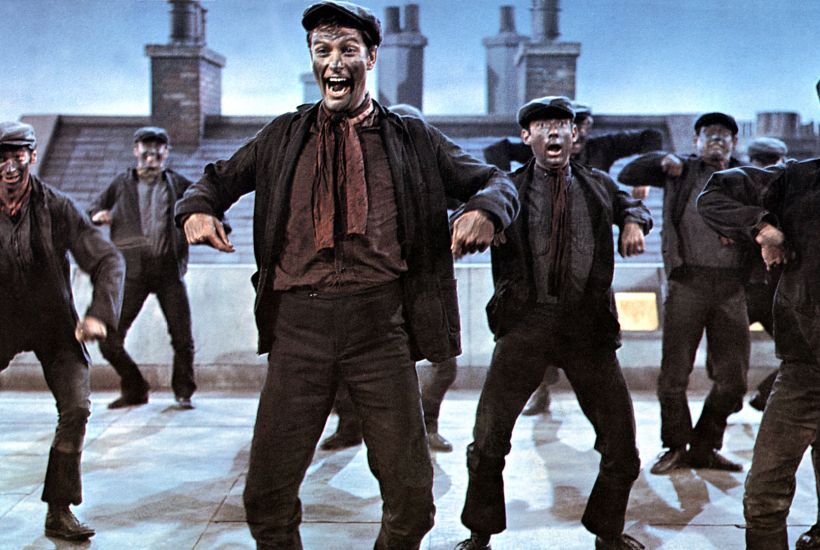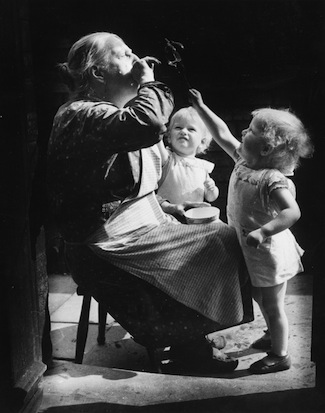Pundits writing for a young audience are always telling readers to ‘stop pretending to be working-class!’ and stop ‘fetishising the working class’. They seem more angered by the imitation of class than the iniquities of class itself. Singer Lily Allen and the rap star Yungblud have both been denounced on Twitter for – to paraphrase E.P. Thompson – the faking of the English working class.
Personally, I don’t understand the fuss. For most of my youth I pretended to be working -class – and so did most of my middle–class mates (sorry, friends). And we were not alone. Throughout the 1960s and 1970s the voices of youth all sounded working–class, especially the middle-class ones like Jagger, Bowie and, yes, that faux working-class hero himself, John Lennon. Today, with our fixation on cultural appropriation, they’d all be denounced on Twitter for class tourism.
My journey into working-class tourism began when my American parents moved to London in the 1960s and I ended up attending a local north London comprehensive school called Holloway. In the hope of fitting in, I began trying to pass as just another working-class kid. Believe me, it wasn’t easy with a name like Cosmo. At Holloway you were either a Kevin, a Gary, a Dave, or you were a ‘tosser’ with a funny name.
Matters weren’t helped by my macrobiotic parents’ insistence that I took a packed lunch of such exotic delights as miso and tahini sandwiches, umeboshi plums and tubs of seaweed. My working-class companions had not yet learned to love the smell of curry, so you could imagine the impact my lunch had. I still remember the trauma I suffered when a classmate found my hidden lunch and brought it to the attention of the rest of the class – there were cries of horror, loud sounds of gagging and much mock vomiting.
Still, I was determined to fit in. So I bought a pair of cherry-red Doc Martens bovver boots – then the popular footwear of every self-respecting skinhead. I wore Ben Sherman shirts, a green windbreaker jacket, and learned to swagger like a geezer and talk like a cockney. And when I made it into the school football team, I’d finally been accepted as one of the working class.
You may wonder why I practised this deceit of mine. Why not simply be my nice middle-class self? Because I would have been beaten up for being a ‘ponce’ who talked funny and acted superior, that’s why. No, it was a question of adapt or die. This was not simply about tourism or slumming; all adolescents want to fit in with their peers.
But it wasn’t just an act. I had a real affection and admiration for the home lives of my working-class friends. Compared with the middle–class bohemianism of my home – a place devoid of rules and boundaries, where weirdo artists and crazy writers roamed free – the orderly homes of my friends offered a kind of comforting normality. It was a refuge from the chaos of my liberal progressive upbringing. Their mums offered such forbidden goodies as thick slices of crusty white bread lacquered in butter and strawberry jam along with Wagon Wheels and endless cups of sweet tea. At my health–conscious middle-class friends’ homes, you’d be lucky to get a glass of organic apple juice with your slice of sugar-free buckwheat cake.
When I left Holloway school and moved into adult life, I thought I’d left my working-class affectations behind. But it was my first wife – a working-class girl from Bristol – who one day asked me: ‘Why do you always talk to working people with that ridiculous Dick Van Dyke cockney accent of yours?’ ‘Dunno,’ I said, ‘I fink it’s because I want them to accept and like me.’
Those who rage against working-class tourism seem to believe that we’re still living in a pre-1960s Britain, where we were all in our own separate and distinct cultural worlds. Yes, the class system is still alive but there’s so much more cultural cross fertilisation that that kind of talk makes no sense.
When a typical middle-class kid professes a love of football or going to the pub, or shows off his latest tattoo, is he trying to pass for working-class? When a working-class kid wants to go into higher education, enjoy foreign travel and go into therapy, is he trying to be middle-class? We live in a much more mix-and-match culture that makes talk of class as a foreign country redundant.
Yes, call people like me fakes and phoneys, but isn’t imitation the sincerest form of flattery?
Got something to add? Join the discussion and comment below.
Get 10 issues for just $10
Subscribe to The Spectator Australia today for the next 10 magazine issues, plus full online access, for just $10.
You might disagree with half of it, but you’ll enjoy reading all of it. Try your first month for free, then just $2 a week for the remainder of your first year.














Comments
Don't miss out
Join the conversation with other Spectator Australia readers. Subscribe to leave a comment.
SUBSCRIBEAlready a subscriber? Log in